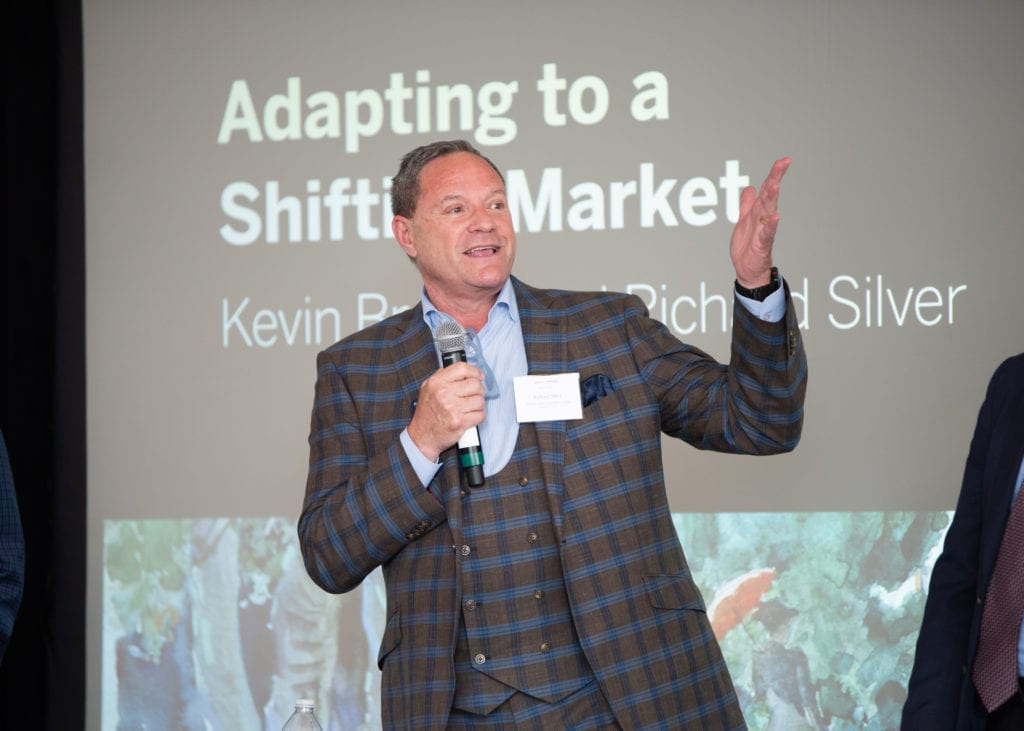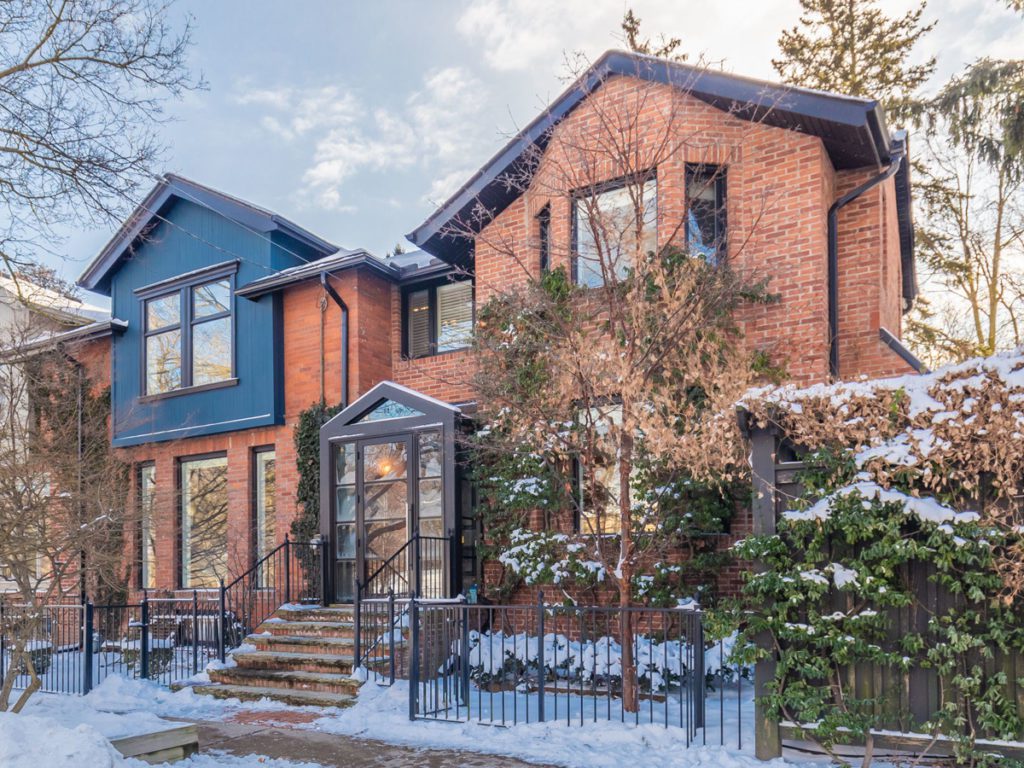Richard Siler recently recorded an episode of Vancouver Real Estate Podcast with it’s hosts Adam and Matt Scalena, talking about the future of luxury real estate.
Here’s where you can listen:
In the midst of lagging global luxury real estate sales, Toronto’s high end product still seems to have legs! But what does the future of global real estate look like and how does it inform other, more local markets. Meet Richard Silver. He’s the former President of the Toronto Real Estate Board, a Certified International Property Specialist for Sotheby’s Realty, and was named one of the “100 Most Influential People in Real Estate” by San Francisco’s Inman News. Where are the global elite buying? Will Vancouver and Toronto remain on the international stage? And what does all this mean for Canadian Real Estate?! Grab a glass of the finest brandy and a spoon or two of caviar… this episode’s luxurious!
Episode Summary
About Richard:
Richard Silver is the VP and Senior Global Real Estate Advisor at Sotheby’s International Realty. He is a past president of the Toronto Real Estate Board. He was born and raised in Alberta, but moved to Toronto to pursue a career in dancing, singing and acting. He has a degree in dance from the University of Oregon and he taught dance at York University. He decided to take a real estate course, which started his real estate journey. He did not know many people in Toronto when he started in real estate and he built up his sphere of influence through hosting open houses and hard work.
On the global slow down in luxury real estate that seems to be happening currently:
Richard feels that the slow down is very location based – real estate is local. When looking at stats, you can see London is hurting and New York is hurting, but Toronto is still doing fine. There was a slow down 2 years ago in Toronto associated with the foreign buyers sales tax, but the market has rebounded. The downtown area in Toronto is still going strong, but the surrounding suburbs of Toronto are a bit softer.
On why he feels Toronto is weathering the slow down better than some other world markets:
Generally, Toronto has a net immigration to the city of over 100,000 people per year. Some of these people are from other parts of Canada, but they are also from foreign countries. People are coming from the Pacific Rim, Europe, the far east and the Middle East. This makes for a diverse foreign buyer segment and helps drive the Toronto market.
On recent restrictions of capital outflows from China:
It is much more difficult to get money out of China these days. There are still people from China looking to buy properties in Toronto. There is a strong focus for these groups toward private schools, universities, health services, clean air and other factors that attract Chinese buyers to move from China.
We are seeing the same capital restrictions in India and Russia which is making it harder to move money to Canada from these markets.
On how he got to focus on China and the global elite segment of the real estate market:
When he started real estate, he lived very close to Chinatown in Toronto. He worked with many Chinese buyers. At that time, there were a large number of Cantonese speaking buyers coming from Hong Kong. Now, Toronto has a large population of Mandarin speaking buyers that are attracted mainly by the access to private schools. Richard has been to China 4 times throughout his career and he enjoys going and talking to people to see what makes them tick, answering their questions, helping them navigate Canada. Many people ask him about the differences between Toronto and Vancouver. Richard feels that Toronto is where you make your money and Vancouver is where you spend your money. Vancouver may have the best lifestyle of anywhere in Canada where people have a work life balance and take advantage of the many outdoor amenities. Toronto is more business focused with people working longer hours with less of a focus on being outdoors.
On the differences in the real estate markets of downtown Toronto versus the surrounding Toronto area (GTA):
Canada has an advantage over the United States when attracting foreign students because Canada offers a 3-year work permit to student after they finish University. This is a big driver for foreign buyers coming to Toronto and living in the downtown area – where most of the schools, businesses and amenities are.
As the traffic gets worse in Toronto, you see people trying to move closer and closer to the downtown of the city to cut down on their commute. The downtown high-end areas are becoming very busy these days – the push is related to accessibility. There is also a lot of building going on in the downtown core, but the infrastructure and transit systems need to keep pace with all the people making their home in the city.
On how foreign buyers are different than local seller and buyers:
People in the world are different and you need to know how to relate to them. For example, you need to think about how you present a business card and how you shake hands. There is a diverse group of people immigrating to Toronto – speaking in generalities, people from China may be concerned with education, people from India may be concerned with property appreciation and the cap rate of a purchase. There is also a very strong Persian community in the city. The diversity is what makes Toronto great and Richard loves working with all different types of people, but you must understand different peoples needs and what they want out of a home.
On foreign buyers and if they are good for Toronto’s real estate market:
Yes, they are great for the market. Richard was originally a bit shocked when Vancouver implemented the foreign buyer’s sales tax because he felt like it might be targeting one group of people over another. When the same tax was implemented in Ontario, the government required that the legal community keep records of people’s residence to gather statistics. What they found was that 3% of the real estate market was due to foreign buyers buying for investment with no intention to live in Canada. This was much lower than had originally been suggested.
There are taxes designed at addressing vacancy in the city, but Toronto does not seem to have a vacancy problem with homes sitting empty. There are lots of rental properties in Toronto and the idea that properties are sitting vacant in either Vancouver or Toronto seems to be a large misconception – this is just not the case.
How have foreign buyers reacted to the non-resident speculation tax in Toronto:
It has not been a positive thing for them, but people are still buying. If you are buying in US dollars, you are still getting a 30% discount by buying in Canada over the United States – these people are still buying. The market has slowed due to the tax in combination with people from China and India having a tougher time getting their money into Canada, but there still a lot of people that are investing in Toronto, living here and starting businesses here.
On why Toronto is wreathing the market slow down better than Vancouver:
The economy is south western Ontario is going through a bit of a boom right now. This is attracting people from other parts of Canada and even people from the United States. There are 180 construction cranes in Toronto right now and there is a market frenzy to buy. The net immigration to the city of over 100,000 people a year is driving demand. We are also seeing less and less retired people downsizing to a condo in the traditional manner that we have seen in the past. These factors are driving Toronto’s market.
On the next 3-5 years for the Toronto Real Estate market:
Richard feels the market will continue to be strong over the next 3 to 5 years. The major factors are high immigration and low mortgage rates. The United States is coming up on an election in 2020 and historically mortgage rates in the USA are low when approaching an election. This suggests low rates in Canada as well, which will continue to drive the real estate market. Canada is the best county in the world and we will continue to see people from other parts of the world moving here.
On his thoughts on the Vancouver market:
The Vancouver real estate market is always 30-40% higher than Toronto. People complain about the prices in Toronto, but Vancouver is much higher. This price difference is driven by the outdoor amenities in Vancouver and people are willing to pay for them.
On real estate being a global asset class going forward:
There are great places to live in the world and each place has its own set of special factors that attract people. Mountains, lakes, weather, business interests, etc. High net worth individuals own multiple properties and they are in different parts of the world and they are moving in between the properties. As this trend continues, we will continue to have a strong world economy. There are large populations in China and India and a large amount of these people are doing very well economically and want to diversify and move to other parts of the world. This will affect Canada’s marketplace because we have an attractive country, economically safe, where people want to live. As prices in London and other superstar cities continue to increase, cities like Toronto will become very attractive to people looking to purchase real estate.
Five-wire (Toronto edition):
- Favourite neighbourhood in Toronto: Cabbagetown
- Favourite bar or restaurant: House on Parliament
- Downtown penthouse or GTA mansion: Penthouse. He has done the house thing and this is an attractive option at this stage in his life.
- First place he brings someone from out-of-town in Toronto: Distillery Area, Yorkville – but it depends on who they are and where they are staying.
- Recent purchase under $500 that’s had a big impact on his life: Funky socks – socks are getting much more colourful and fun than your basic dull colours.




